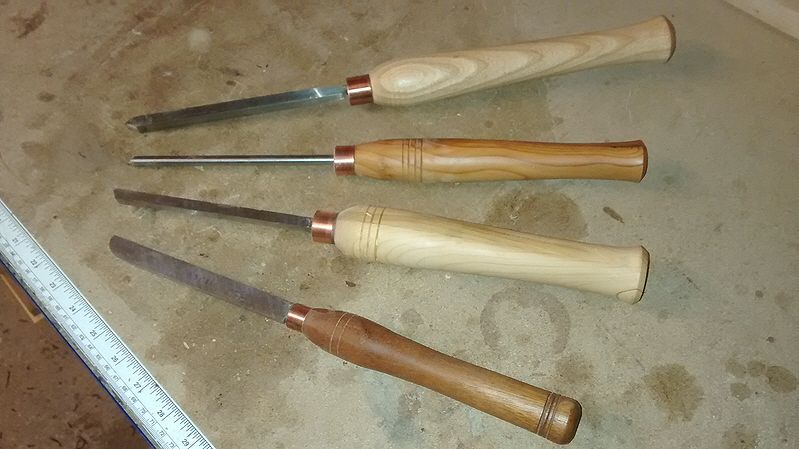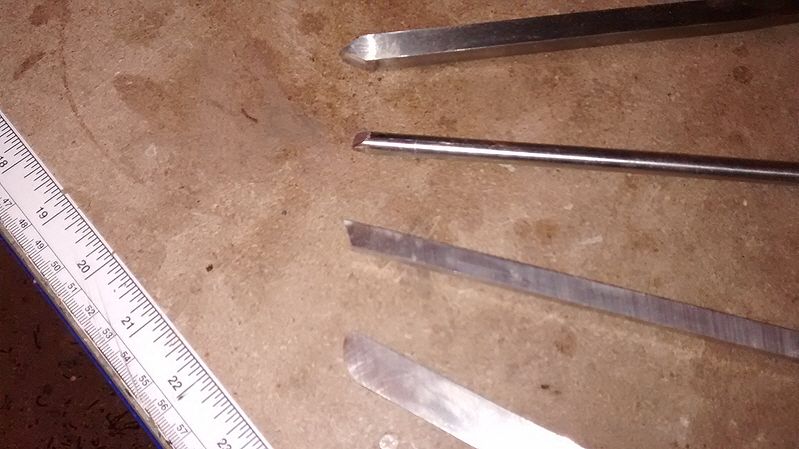CHJ
Established Member
The bulk of turning tools intended for heavy turning loads are made from round solid stock and the full diameter/cross section stock is inserted or clamped in the supporting handle. (even these have been known to bend under catch conditions)John Brown":2d8qapoc said:For those of us without a clue, can you explain how a proper turning tool is constructed, if not with a tang?
...
Even modern HSS turning tools made with a tang fitting such as scrapers and parting tools should be used with caution and in the working orientation that they were intended to be used in, I.E scrapers in trailing mode so there is no risk of a catch, and skew chisels and spindle roughing gouges (the broken item) should only be used for spindles where end grain or shock loads are unlikely to be encountered.










